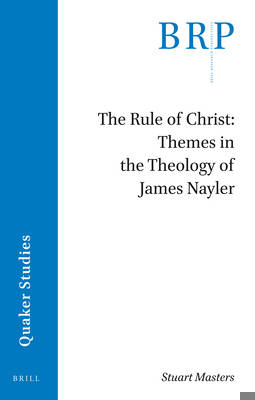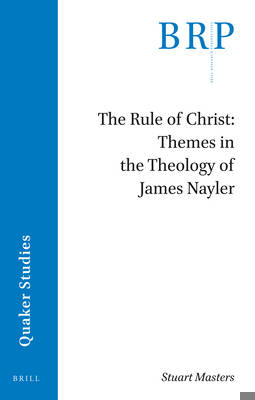
- Afhalen na 1 uur in een winkel met voorraad
- Gratis thuislevering in België vanaf € 30
- Ruim aanbod met 7 miljoen producten
- Afhalen na 1 uur in een winkel met voorraad
- Gratis thuislevering in België vanaf € 30
- Ruim aanbod met 7 miljoen producten
Zoeken
Omschrijving
During the 1650s, James Nayler was one of the most important leaders of the emerging Quaker movement in England and, arguably, its most effective preacher and writer. However, his legacy has been dominated by events that took place in the summer and autumn of 1656, leading to a conviction for blasphemy, brutal public punishment, and imprisonment. Official histories of Quaker beginnings portrayed him as a gifted, but flawed, character, who brought the Quaker movement into disrepute, and prompted a concern for corporate order. Scholarship during the past century has begun to question this received position. However, a continued preoccupation with his 'fall' has tended to overshadow interpretations of his writings. In this volume, Stuart Masters seeks to identify a number of important theological themes visible within Nayler's works, and to locate them within their radical religious context. He argues that a powerful Christological vision at the heart of Nayler's religious thought engendered a practical theology with radical political, economic, and ecological implications.
Specificaties
Betrokkenen
- Auteur(s):
- Uitgeverij:
Inhoud
- Aantal bladzijden:
- 108
- Taal:
- Engels
- Reeks:
Eigenschappen
- Productcode (EAN):
- 9789004468726
- Verschijningsdatum:
- 10/06/2021
- Uitvoering:
- Paperback
- Formaat:
- Trade paperback (VS)
- Afmetingen:
- 152 mm x 230 mm
- Gewicht:
- 158 g

Alleen bij Standaard Boekhandel
+ 286 punten op je klantenkaart van Standaard Boekhandel
Beoordelingen
We publiceren alleen reviews die voldoen aan de voorwaarden voor reviews. Bekijk onze voorwaarden voor reviews.











